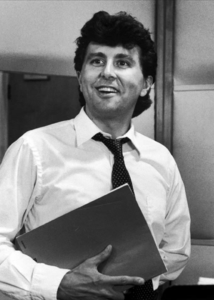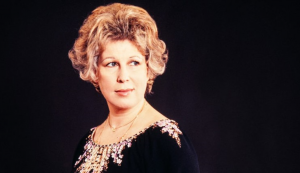Podcast: Play in new window | Download (Duration: 1:47:57 — 123.4MB) | Embed
Subscribe: Spotify | TuneIn | RSS | More
Swiss tenor Eric Tappy (19 May 1931 – 11 June 2024) excelled in so many different musical styles, eras, and genres, that when one considers his artistic achievement systematically, as a whole, one is positively stunned at all that he achieved, and that within a relatively short international career that extended barely 20 years. In addition, at the beginning of his career, his voice was that of a light lyric tenor, but gradually he came to sing heavier roles such as Idomeneo and Tito. The episode considers his biography and the trajectory of that career, touching upon his opera and concert work which ranged from early Baroque through contemporary. For the first ten years of his adult life, he worked as a teacher, gradually gaining enough exposure that he was able to fully devote himself to his singing career after he won several international singing competitions. Tappy is heard in the episode in concert work of Bach, Berlioz, Haydn, and contemporary Dutch composer Rudolf Escher; art songs by both Franz Schubert and Lili Boulanger; and operas by Monteverdi, Gounod, Mozart, and Debussy (his Pelléas was as legendary as his Monteverdi and Mozart impersonations). In addition, Tappy is heard in live and radio recordings of work by his fellow Swiss compatriots Arthur Honegger, Frank Martin, Constantin Régamey, and Hermann Suter. Guest singers include Countermelody favorites Ileana Cotrubaș, Rachel Yakar, Hugues Cuénod, Edda Moser, and Gino Quilico; musical collaborators include Ernest Ansermet, Michel Corboz, Nino Sanzogno, John Pritchard, Armin Jordan, Hans Münch (brother of Charles), Colin Davis, Hans Vonk, and Jean Françaix, among others. Prepare to be surprised and delighted by this great singer, who ended his active singing career at the age of only 50 but who continued as a formative and beloved teacher well into his old age.
Countermelody is a podcast devoted to the glory and the power of the human voice raised in song. Singer and vocal aficionado Daniel Gundlach explores great singers of the past and present focusing in particular on those who are less well-remembered today than they should be. Daniel’s lifetime in music as a professional countertenor, pianist, vocal coach, voice teacher, and author yields an exciting array of anecdotes, impressions, and “inside stories.” At Countermelody’s core is the celebration of great singers of all stripes, their instruments, and the connection they make to the words they sing. By clicking on the following link (https://linktr.ee/CountermelodyPodcast) you can find the dedicated Countermelody website which contains additional content including artist photos and episode setlists. The link will also take you to Countermelody’s Patreon page, where you can pledge your monthly or yearly support at whatever level you can afford.






